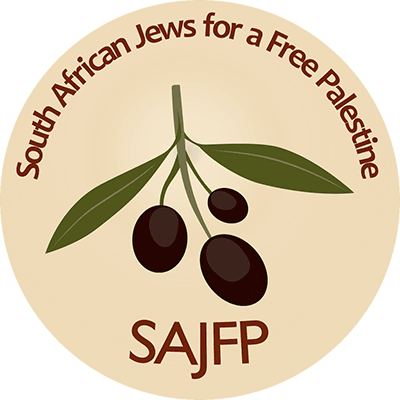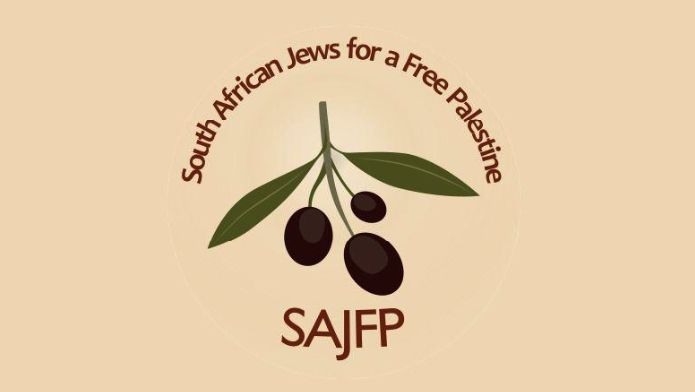On 23 & 24 October 2025, South African Jews for a Free Palestine (SAJFP) will make its submissions for admission as amicus curiae, or ‘friends of the court’, in a case brought by Professor Adam Mendelsohn seeking to overturn two resolutions passed by the University of Cape Town (UCT) Council in June 2024.
UCT tabled and passed the resolutions in response to the ongoing atrocities in Gaza — atrocities that we, alongside the world’s leading genocide scholars, United Nations experts, a United Nations commission of inquiry, and the world’s most prominent human rights organisations, including Israeli human rights organisations, recognise as genocide.
The Zionist regime’s two-year onslaught of the Gaza Strip has brought about some of the most brutal violations of the human rights of the Palestinian people in decades and has caused immense suffering and destruction that will be felt for generations to come. The scholasticide being committed by Israel is without historical precedent; its military has destroyed most of the schools and all of the universities in Gaza.
Amidst the ongoing genocide, as global solidarity with Palestine has intensified, so has suppression by governments and university administrators of speech, research and activism that is critical of Israel’s actions. Driven by political lobby groups and wealthy donors, this Zionist campaign poses a significant threat to freedom of expression and association, as well as academic freedom. In this context, UCT Council’s adoption of the resolutions challenged by Professor Mendelsohn is not just a reasonable and legitimate response by a public university in South Africa, but the morally responsible position to take.
UCT’s first resolution rejects the conflation of criticism of Israel and Zionism with antisemitism in the International Holocaust Remembrance Alliance’s (IHRA) definition of antisemitism. As SAJFP’s expert Professor Steven Friedman explains in his affidavit, the IHRA has functioned as the “chief vehicle” for suppressing criticism of Israel. In SAJFP’s submissions, we demonstrate how the IHRA definition of antisemitism conflates antisemitism with criticism of Israel and Zionism. We provide evidence of how wealthy and influential donors have used this definition to stifle speech and expression at universities worldwide through conditions in donor contracts and threats to withdraw funding. We also warn of how the IHRA definition undermines the effort to combat real instances of antisemitism: discrimination against Jews on the sole basis of their being Jewish. UCT Council’s refusal to adopt the IHRA definition and its conflation is a crucial step in protecting freedom of expression, including academic freedom, of UCT’s staff and students — many of whom are members of SAJFP.
UCT’s second resolution prohibits UCT academics from entering into or continuing relations with research groups or networks who have author affiliations with the Israel Defence Forces (IDF) or the broader Israeli military establishment. SAJFP believes that restricting research collaborations with individuals and groups associated with gross human rights violations is urgent in ensuring that UCT meets its domestic and international legal obligations and protects academic freedom.
SAJFP’s submissions draw on our experience as a Jewish anti-Zionist organisation which advocates for the realisation of the rights of the Palestinian people and works to disentangle Judaism from Zionism. Jewish people, in our heterogeneity, cannot be limited by and defined within a single ethnic state. It is not antisemitic to criticise Israel and to oppose the existence of a state which seeks to manufacture a Jewish demographic majority and Jewish political supremacy over others. By advocating for such a state, Zionism clearly reveals itself as a racist ideology. Antisemitism, which is a form of racism, cannot be combatted while defending Zionism.
As South Africans, faced with our own ongoing struggle against the legacies of settler colonialism, we remember the history of powerful international solidarity campaigns, including academic boycotts, against the apartheid regime. As a member of the Boycott Divestment and Sanctions (BDS) coalition, SAJFP’s submissions are informed by its advocacy for boycotts, including academic boycotts, as a mechanism to hold Israel to account for its violations of the human rights of the Palestinians.
It is with a strong commitment to the Jewish value of doykayt that we have decided to enter this case and offer our experience and expertise to the Court. Doykayt or “hereness” demands that we seek justice and freedom where we are, and, in post-apartheid South Africa, fulfilling this commitment means protecting the freedoms so long fought for in South Africa and at UCT. UCT’s resolutions are an expression of this commitment and of our collective responsibility not to be complicit in Israel’s ongoing atrocities in Palestine.
SAJFP’s application introduces the evidence of four experts:
- Professor Steven Friedman of the University of Johannesburg (on the distinction between criticism of Israel and antisemitism);
- Professor Emerita Joan Scott of the Institute for Advanced Study in Princeton, New Jersey (on the consequences of the IHRA definition and on academic boycotts);
- Professor Isaac Kamola of Trinity College in Hartford, Connecticut (on academic freedom and donor pressure); and
- Professor Emeritus Rashid Khalidi of Columbia University, New York (on how the adoption of the IHRA definition by Columbia University has restricted his ability to teach).
You can read SAJFP’s heads of argument here.
Media Inquiries:
E-mail: [email protected]
Phone: (+27) 061 142 1948

